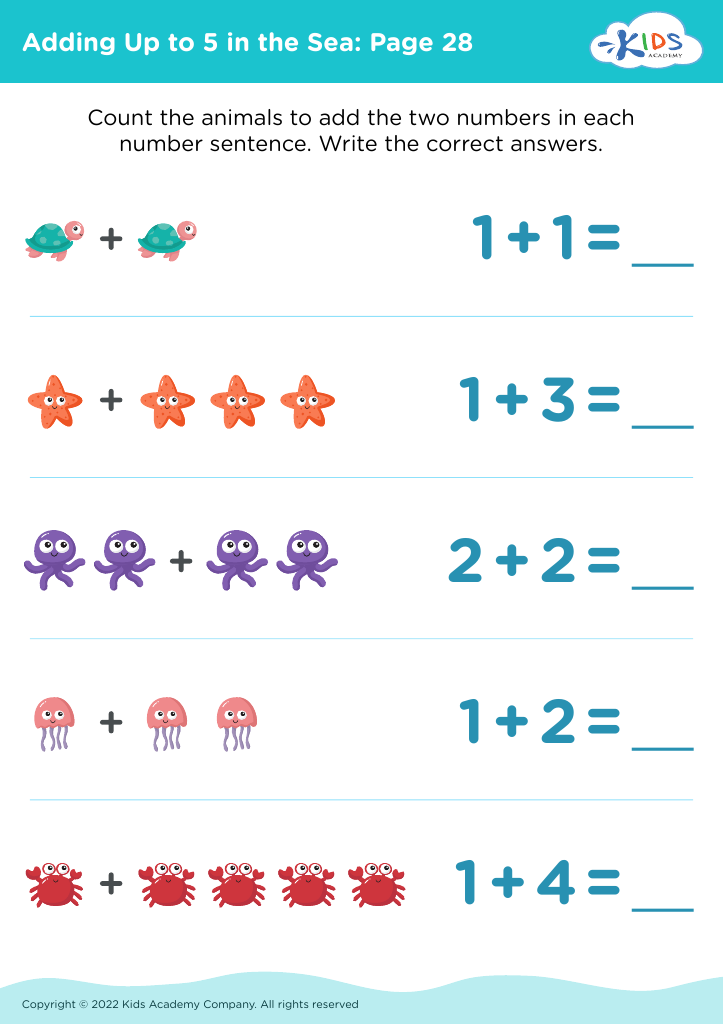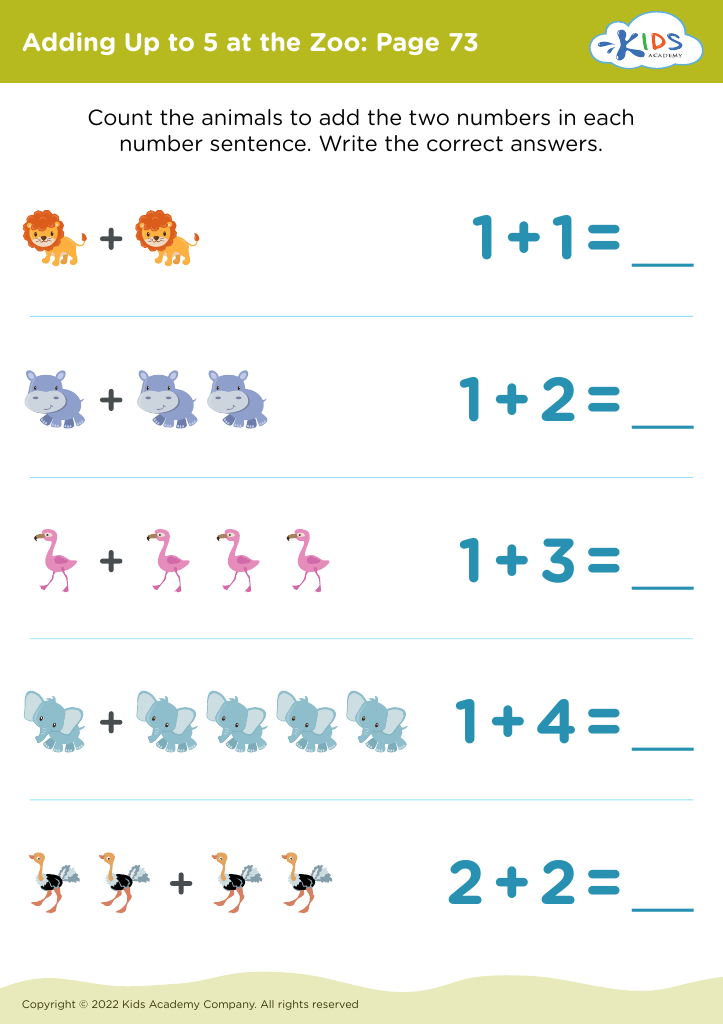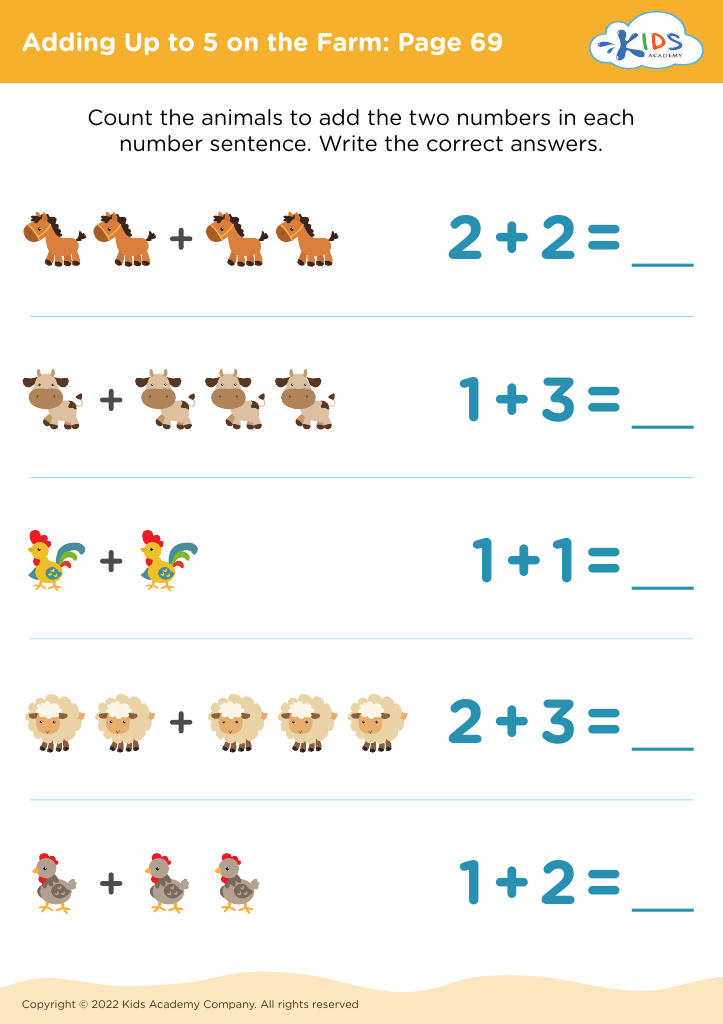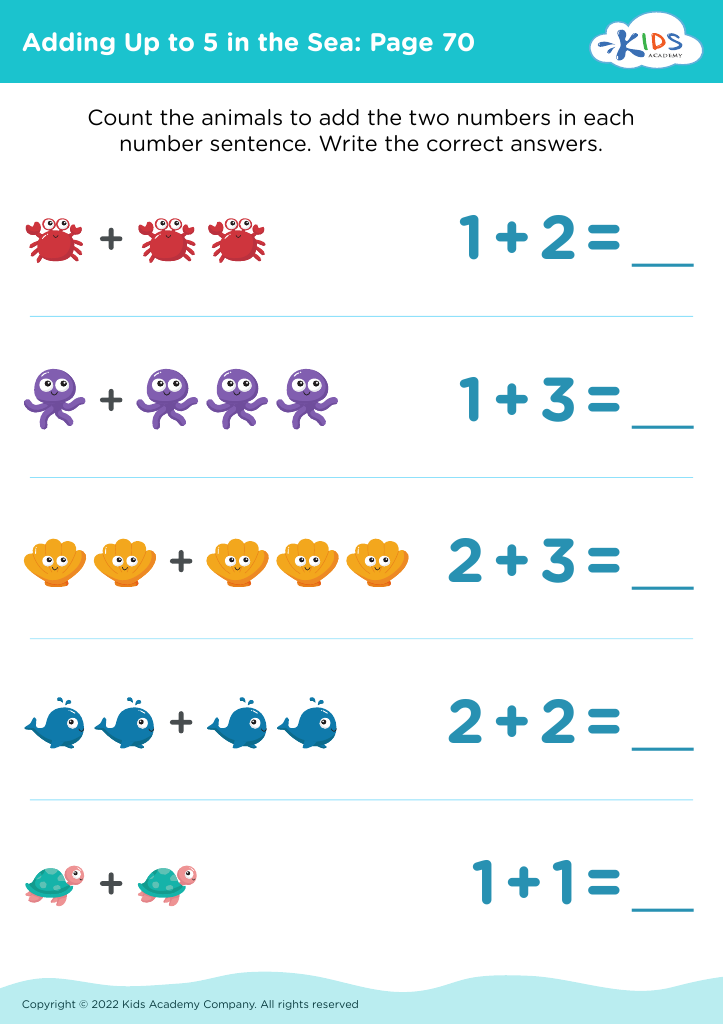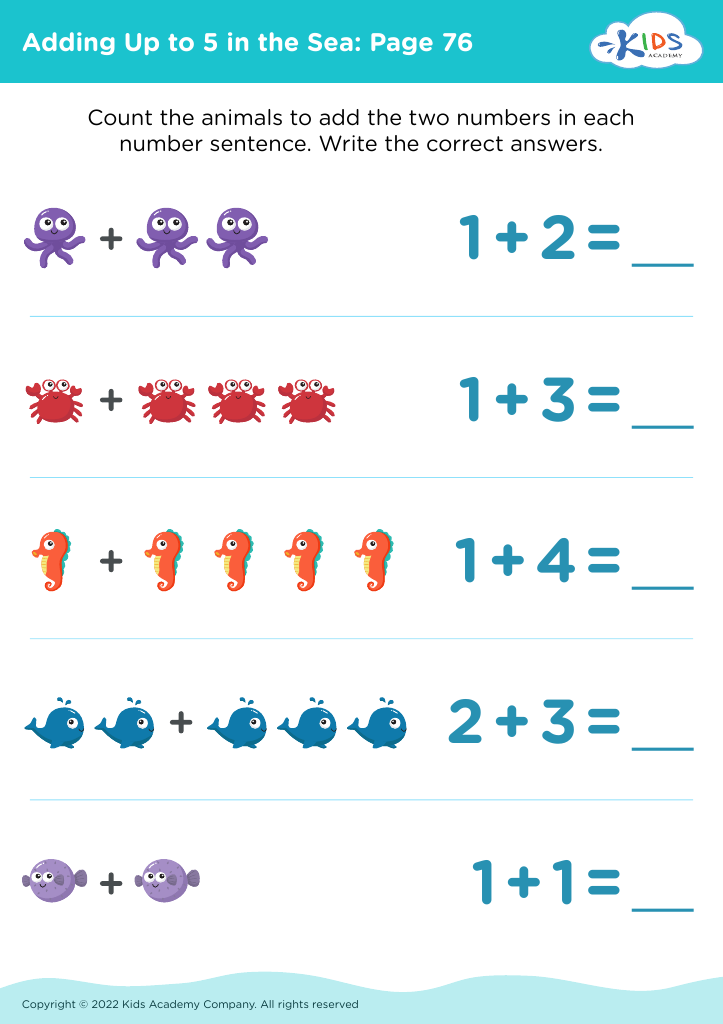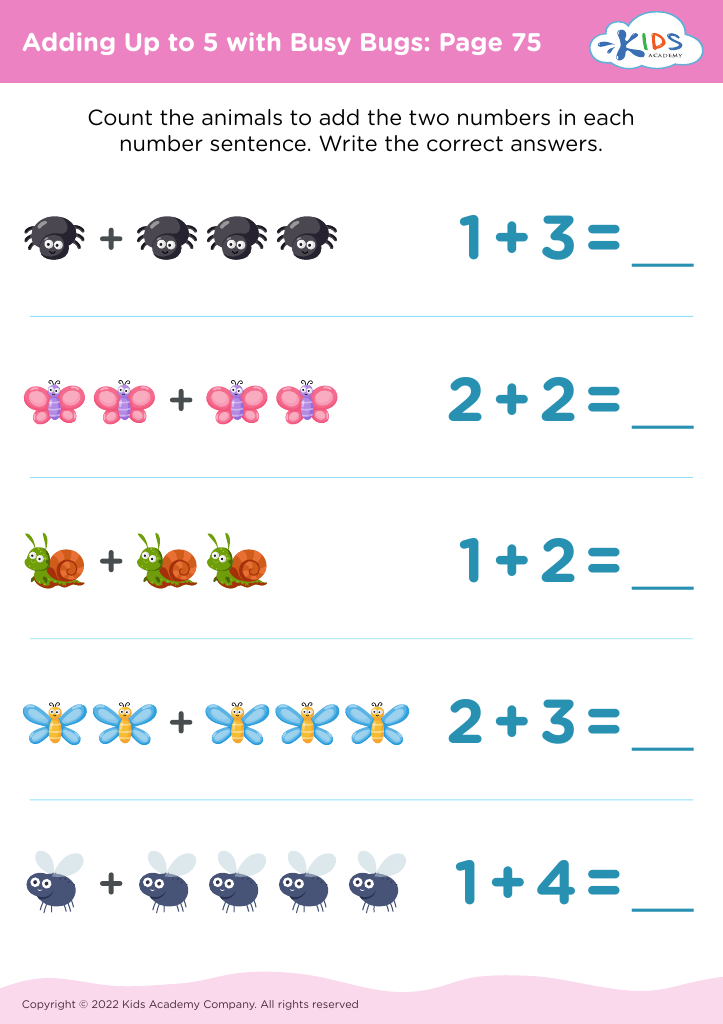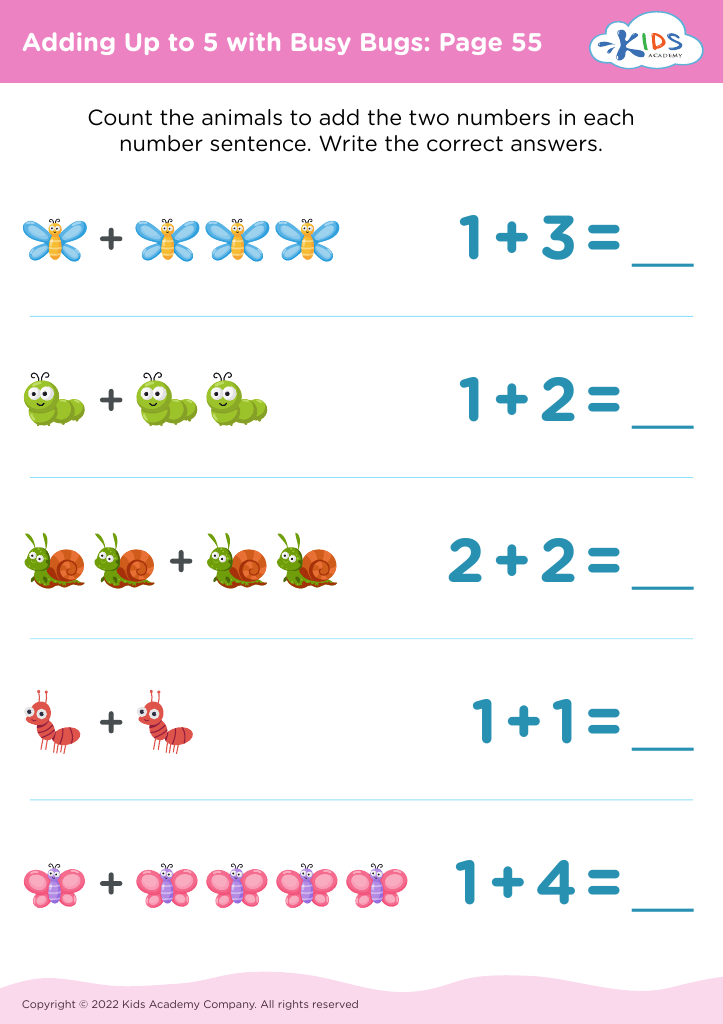Basic Math understanding Addition & Subtraction Worksheets for Ages 5-6
7 filtered results
-
From - To
Introduce your child to the world of numbers with our "Basic Math Understanding: Addition & Subtraction Worksheets for Ages 5-6." Specifically designed for young learners, these worksheets help kids build a solid foundation in basic math skills. Each worksheet focuses on simple addition and subtraction problems, making learning fun and engaging. With colorful visuals and straightforward instructions, these activities are perfect for kindergartners and first graders. Download our free worksheets today and give your child the confidence they need in math class! Ideal for parents and teachers looking to supplement their math curriculum.
Parents and teachers should prioritize a strong foundation in basic math skills, particularly addition and subtraction, for children aged 5-6. Early math proficiency is crucial, as it forms the building blocks for more complex mathematical concepts and problem-solving abilities. At this age, children's brains are especially receptive to learning new concepts, making it the ideal time to instill a solid understanding of numerical operations.
Learning addition and subtraction helps children develop critical thinking and logical reasoning skills. For instance, grasping the notion that numbers can be broken down and recombined in different ways enhances mental flexibility, a skill that is valuable beyond math. Moreover, basic math introduces the concepts of counting, recognizing patterns, and understanding relationships between numbers, all fundamental for later academic success in STEM fields.
Early math proficiency is also linked to better performance in other subjects. Children who excel in math tend to perform better in reading and writing, as both subjects require analytical thinking and attention to detail. Teachers and parents play a vital role in making math engaging and enjoyable, making use of everyday activities and games to introduce these foundational concepts naturally and effectively. This early intervention ensures that children are confident and prepared for future academic challenges.
